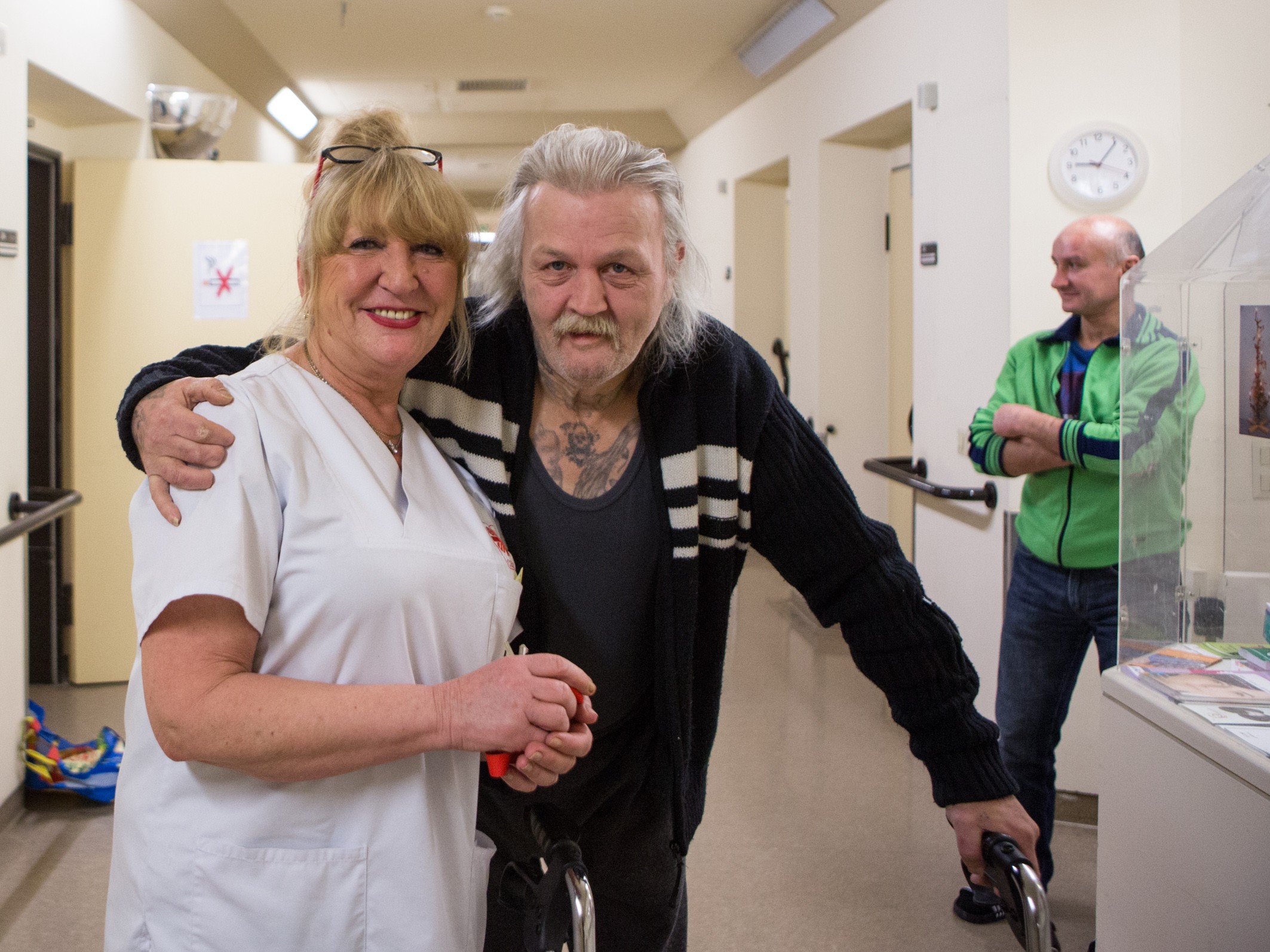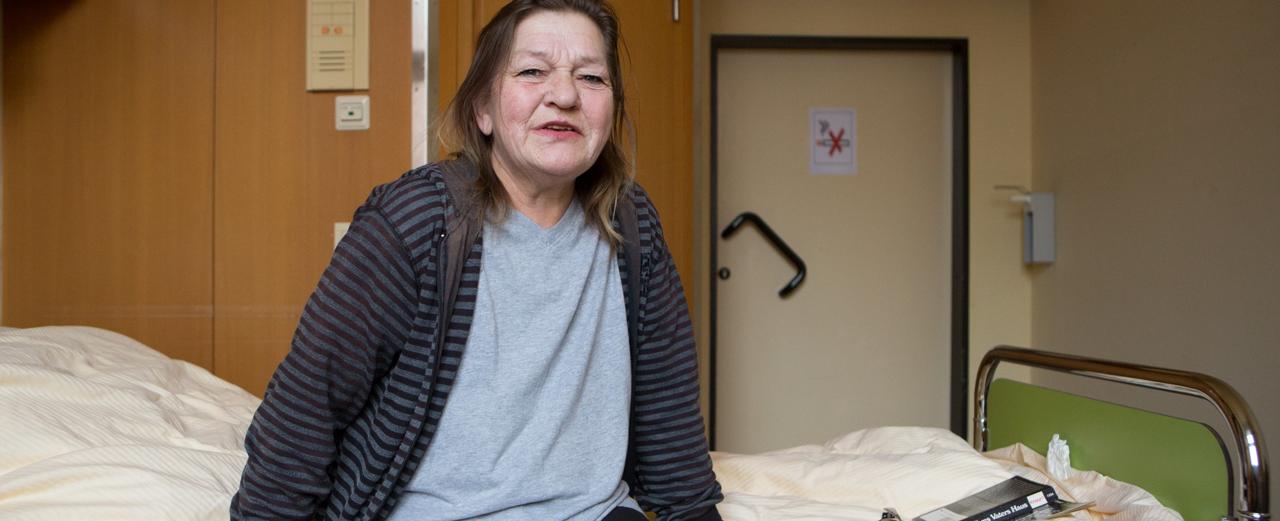 A medical centre for the homeless
A medical centre for the homeless
Medical care for homeless people in Berlin
40-year-old Barbara lives on the street. The patient is actually in need of long-term care, as she suffers from severe arthritis. On the street she could hardly recover from her illness. Fortunately, she has found a place in the Berlin hospital for homeless people. Now she can rest for a while in one of the shared rooms. Since 2018, patients like Barbara have been treated here even if they do not have health insurance. At the other end of the corridor lies a man who broke his lower leg in an accident. The doctors inserted pins into his leg, but the wounds became infected. Since he has no permanent residence, he is not able to care for his wounds properly. Now the pins have been removed and the man is recovering. But even he, a 34-year-old diabetic, has no health insurance, so his illness remained untreated for a long time. Now he is being properly treated with insulin in Berlin's Turmstraße. The staff teach him how to take care of himself.
Necessity
Stationary medical care for the homeless.
Activity
Caritas Berlin runs a hospital shelter for the homeless. Trained nursing staff look after the patients there.
Countable effort
Number of homeless people cared for and number of wounds treated.
Result
The health status of homeless people improves. The impoverishment is counteracted by humane treatment.
Systemic effect
The access of homeless people to the regular health care system will be improved in the long term.
Background
Berlin, the capital of one of the richest countries in the world is also considered the capital of homelessness. An estimated 6,000 homeless people live here. The reasons for these high numbers is a tight housing market and the migration of homeless people from other European countries. Most homeless people are not (adequately) covered by the regular medical care services. Although there are medical practices for homeless people, there is no possibility for them to recover in peace and quiet and in a protected area after being discharged from hospital or in case of chronic diseases. Among the homeless there are also many people from other European countries, especially from countries east of Germany. Berlin, as a dynamic city in a prosperous country, attracts people who mostly live in poor conditions and hope to find work in Germany’s capital. If they do not succeed in doing so, for many people the only option left is to take to the streets. Unlike homeless German citizens, they are not entitled to social benefits and often – especially if they are non-EU citizens – have no health insurance.
Before there was accommodation for the sick, homeless people were repeatedly discharged from hospital into shelters or out-of-the-cold care facilities. However, these facilities do not provide adequate medical and nursing care. The aim of the hospital shelter is to fill this gap. Through good care and support, homeless people are expected to attain optimal physical and mental health.
The good deed
With today's good deed, homeless people who are acutely and chronically ill are helped by inpatient medical treatment. The patients come to the hospital with skin conditions, wound infections, frostbite, respiratory diseases, but also with broken bones, stomach cramps or septicaemia. What is potentially dangerous under normal circumstances can quickly become life-threatening on the street. But not every emergency situation leads to hospital admission or appropriate treatment. This gap in care is addressed by the hospital shelter. At present, up to 15 patients can stay there for a limited time and receive medical care. All guests are cared for by external volunteer doctors, nursing staff, assistants and a social worker. The social worker also tries to introduce the homeless to other counselling services and, in particular, to help them reintegrate into the health insurance scheme.

AboutGermany
Berlin
Capital
83.132.800
Number of inhabitants
46.946 $
Gross domestic product per capita per year
Placed 4th out of 189
Human Development Index
No country in Europe has more inhabitants and produces more goods and services than Germany. However, some 13 million people also live in poverty or near the poverty line.
About the organization and further information
Association
Caritasverband für das Erzbistum Berlin e.V.
Caritas Gemeinschaftsstiftung: Qualitätssiegel für gute Treuhandverwaltung

Further information and source
- Alice-Salomon-Hochschule, Februar 2018. Handbuch Wohnungslosenhilfe, Berlin.
- Bundesarbeitsgemeinschaft Wohnungslosenhilfe 2016. Statistikbericht 2016, Berlin.
- Caritasverband/GEBEWO, 2016. Gesundheitsbericht zur Lage der medizinischen und zahnmedizinischen Versorgung obdachloser Menschen, Berlin.
- Senatsverwaltung für Integration, Arbeit und Soziales, 3.9.2019. Leitlinien der Wohnungsnotfallhilfe und Wohnungslosenpolitik, Berlin, s. insb. S. 33 II 8.1.




